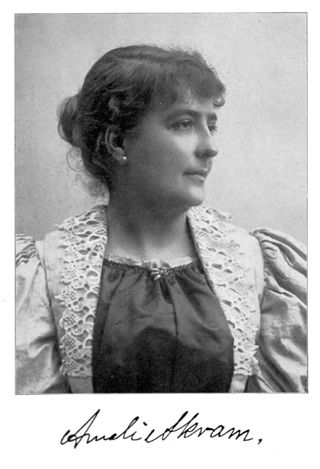| Gender | Female |
|---|---|
| Origin | |
| Word/name | Scandinavia, Germany |
| Other names | |
| Variant form(s) | Elisabeth |
Lisbeth or Lizbeth is a feminine given name, a variant of Elizabeth. It may be:
Astrid is a given name of Scandinavian origin, a modern form of the name Ástríðr. Derived from the Old Norse Ássfriðr, a compound name composed of the elements áss and fríðr.
Anders is a male name in Scandinavian languages and Fering North Frisian, an equivalent of the Greek Andreas ("manly") and the English Andrew. It originated from Andres via metathesis.
Aanya, Anya, Ania or Anja is a given name. The names are feminine in most East European countries and unisex in several African countries.
Randi is both a given name, and a nickname in the English language, popular in North America and Norway. It is primarily a feminine name, although there is recorded usage of the name by men. It may have originated as a pet form of Miranda or as a feminine form of Randy. In turn, Randy was originally derived from the names Randall, Randolf, Randolph, Bertrand and Andrew.
The surname Rasmussen is a Danish and Norwegian surname, meaning Rasmus' son. It is the ninth-most-common surname in Denmark, shared by about 1.9% of the population.
Knudsen may refer to:
Liz is a female name of Hebrew origin, meaning "God's Promise". It is also a short form of Elizabeth, Elisabeth, Lisbeth, Lizanne, Liszbeth, Lizbeth, Lizabeth, Lyzbeth, Lisa, Lizette, Alyssa, and Eliza.
Anneliese is a female given name of either German, Dutch or Nordic origin. It is a compound form of "Anna" and "Liese", a short form of "Elisabeth".
Thorson or Thorsen are Swedish, Norwegian and Danish surnames, and a first name in the Kadaru language. Notable people with the surname include:
Jensen is a Danish and Norwegian patronymic surname derived from the given name Jens
Kirsten is the Scandinavian form of the name Christina.
Kristen is a first name, also the Breton, Danish, Swedish and Norwegian form of Christian. As a result, Kristen is a male name in Norway, Sweden and Denmark, with the female equivalent spelt as Kristin, a Scandinavian form and a variation of Christine. In Breton, Kristen is both a male and female name. In Indonesian, Kristen is the name for Christian religion from English. In English-speaking countries, Kristen is now usually a female name, used as an alternative spelling of Kristin, with the Kristen spelling having become the more popular spelling of the name in English-speaking countries for newborn girls by the mid 1970s.
Bette is a given name, sometimes short for Elizabeth and Bettina, and may refer to:
Mona is a female, and sometimes male, given name and a surname of multiple origins.
Grete or Grethe is a feminine given name, a derivate of Margaret. It is most often used in Scandinavia, Estonia, and German-speaking Europe.
Lund is a common surname, principally of Danish, Swedish, Norwegian and English origin. As a common noun lund means grove in all North Germanic languages. Lund can be English and can be Scandinavian surname. Also Scandinavian and English surnames can have a particle lund. Lund may refer to:
Liv is a Nordic female given name derived from the Old Norse "hlíf", which means "shelter" or "protection". In modern Norwegian, Swedish, and Danish it is also homophonous with the word "liv" meaning "life".

Amalie is a feminine given name. It is a German variant of the name Amalia. It is derived from the root word 'amal', meaning 'work' in German, 'hope' in Arabic and 'water' in Scots-Gaelic.
Annette or Anette is a given name that is the diminutive of Anna or Anne, and has been used as a name of its own since the Industrial Age. In Greek, the variant Anneta is used.
Sidsel may refer to: